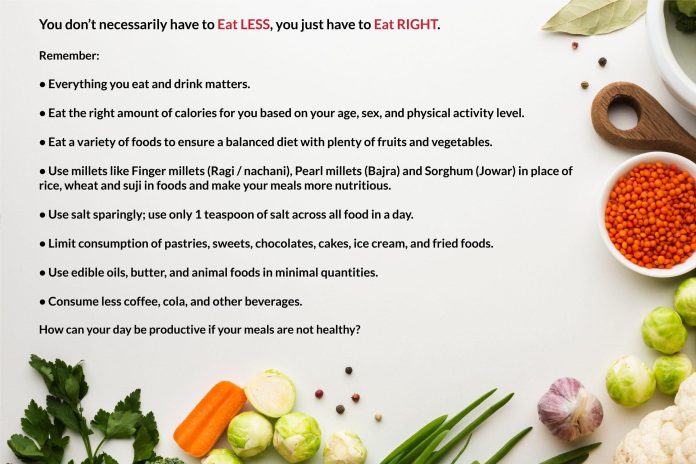In the fast-paced whirlwind of modern life, stress often feels like an unwelcome companion, tagging along at every turn. While its presence is almost inevitable, how we manage it can make all the difference. One of the most powerful tools at our disposal is not found in a pharmacy, but rather on our plates. The relationship between what we eat and how we feel is profound, yet often overlooked. This article delves into the art of nourishing the body to soothe the mind, offering practical and insightful tips on how to harness the power of healthy eating to manage stress. Embark on a journey where every bite becomes a step towards tranquility, transforming daily meals into moments of mindful reprieve.
Nourishing Your Mind with Stress-Relief Foods
Incorporating certain foods into your diet can play a pivotal role in easing stress and promoting mental clarity. Start by embracing foods rich in omega-3 fatty acids, such as salmon and walnuts, which are known to support brain health and improve mood. Dark chocolate is another delightful option; it not only satisfies your sweet cravings but also reduces levels of stress hormones. Don’t forget to include whole grains like quinoa and brown rice, as they provide a steady source of energy and stabilize blood sugar levels, which can help manage anxiety.
Consider these stress-busting foods to enhance your daily meals:
- Avocados: Loaded with healthy fats and potassium, avocados can help lower blood pressure.
- Blueberries: Packed with antioxidants, these berries combat oxidative stress.
- Spinach: A great source of magnesium, spinach can prevent fatigue and improve emotional well-being.
- Chamomile tea: Known for its calming properties, this herbal tea can promote relaxation and better sleep.
By integrating these nutritious choices into your diet, you can nourish your mind and help keep stress at bay.

Balancing Your Diet to Combat Stress
In the hustle and bustle of modern life, stress can often feel like an unavoidable companion. Yet, the food we choose to consume plays a pivotal role in how we manage this stress. Nutrient-rich foods not only fuel our bodies but also support our mental health. Prioritize a balanced diet that includes a variety of fruits, vegetables, lean proteins, and whole grains. These foods are rich in essential vitamins and minerals, such as magnesium and omega-3 fatty acids, which are known to help alleviate stress symptoms.
- Leafy Greens: Spinach and kale are packed with magnesium, which can help reduce cortisol levels.
- Nuts and Seeds: A handful of almonds or pumpkin seeds provides a boost of healthy fats and vitamin E.
- Fatty Fish: Salmon and mackerel are excellent sources of omega-3s, supporting brain health.
- Whole Grains: Opt for quinoa or brown rice to maintain stable blood sugar levels, keeping mood swings at bay.
Incorporating these foods into your daily routine can create a buffer against stress. Remember, a well-balanced diet is a powerful tool in nurturing not only your physical health but your emotional well-being as well.

Mindful Eating Practices for Stress Reduction
Incorporating mindful eating into your daily routine can be a transformative way to alleviate stress. This practice encourages you to engage fully with the eating experience, fostering a deeper connection with your food and your body’s hunger signals. To begin, try slowing down your meals by savoring each bite, and pay attention to the textures, flavors, and aromas. This not only enhances enjoyment but also promotes better digestion.
- Pause before eating: Take a moment to breathe deeply and set an intention for your meal.
- Eliminate distractions: Turn off screens and focus solely on your food and company.
- Chew thoroughly: This simple act can improve nutrient absorption and help regulate appetite.
- Listen to your body: Eat when you’re hungry and stop when you’re satisfied, not stuffed.
Practicing these mindful eating habits can create a sense of calm and control, reducing the chaotic impact stress often has on our eating patterns. By being present and intentional, you cultivate a more harmonious relationship with food, which can lead to improved mental and physical well-being.

Incorporating Superfoods for Enhanced Mental Well-being
Integrating superfoods into your diet can be a transformative step towards enhancing mental well-being and managing stress more effectively. These nutrient-rich foods are packed with antioxidants, vitamins, and minerals that support brain health and improve mood. Consider incorporating the following superfoods into your daily meals:
- Blueberries: Known for their high levels of antioxidants, blueberries help combat oxidative stress and inflammation in the brain.
- Spinach: Rich in folate, this leafy green aids in the production of mood-regulating neurotransmitters such as serotonin.
- Walnuts: Packed with omega-3 fatty acids, walnuts are essential for maintaining healthy brain function and reducing anxiety.
- Dark Chocolate: Containing flavonoids and a small amount of caffeine, dark chocolate can enhance cognitive function and mood.
- Turmeric: This golden spice is celebrated for its anti-inflammatory properties, which are beneficial in alleviating symptoms of depression.
By strategically adding these superfoods to your diet, you can nourish your mind and foster a sense of calm and clarity, ultimately contributing to a more balanced lifestyle.
In Conclusion
As we draw the curtains on our exploration of healthy eating tips for managing stress, it’s clear that the kitchen can be a sanctuary of solace. By choosing foods that nourish both body and mind, we weave a tapestry of resilience against the chaos of daily life. Whether it’s the comfort of a warm herbal tea or the invigorating crunch of fresh vegetables, each mindful bite is a step towards tranquility. Remember, the journey to stress-free living doesn’t require a drastic overhaul but rather a series of small, intentional choices. Let your plate be your palette, painting a picture of well-being and balance. As you venture forward, may these tips serve as gentle reminders that in the world of wellness, you are the artist of your own masterpiece.


































